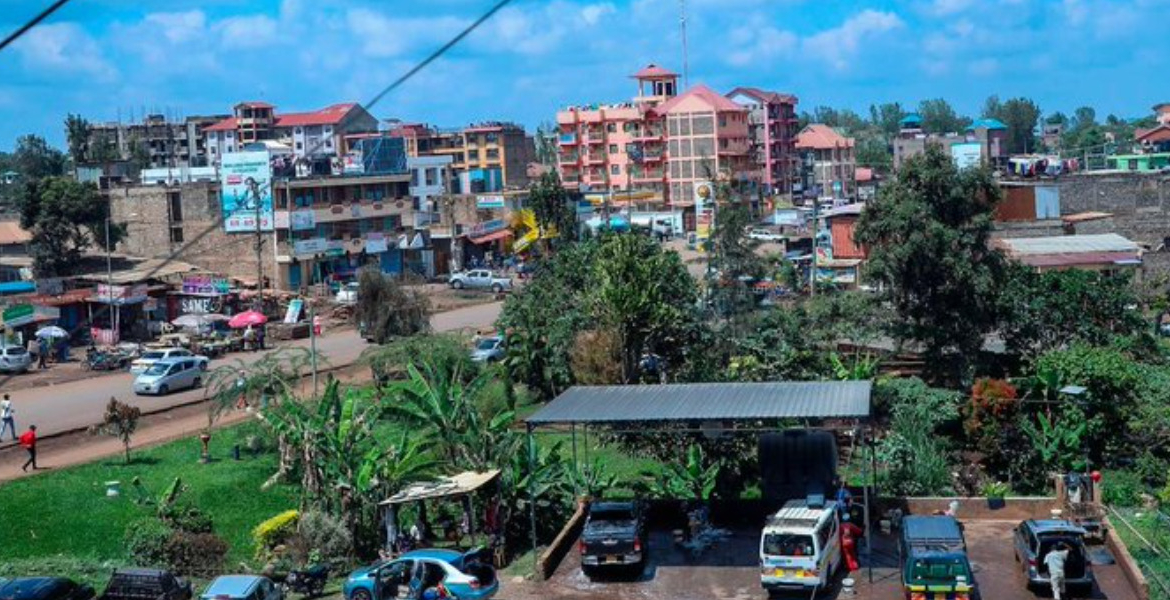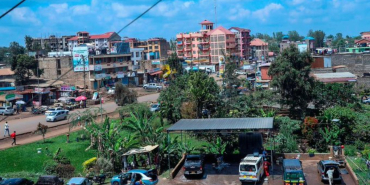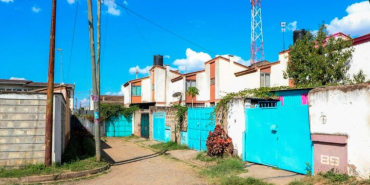Kenol’s Property Boom: How a Quiet Town Became a Thriving Trade Hub

A small convenience shop and eatery at a petrol station has grown into one of Kenol’s largest commercial centres.
Annabelle Njambi Wamunyu and her husband opened the original shop nearly twelve years ago to serve motorists travelling to Murang’a and Nyeri. Initially, business was slow, but the couple expanded their operations over time, combining fuel sales, a mini-mart, and a restaurant.
Their eatery, Magomano, soon attracted customers attending local events such as weddings and funerals, prompting further growth. The success of their shop led to the creation of County Supermarket, a three-storey retail hub that remains one of Kenol’s oldest surviving supermarkets.
Mrs Wamunyu explained that the name was chosen to reflect the couple’s ambition to expand beyond the town: “We wanted a name that could fit anywhere in the country. When counties were being introduced, we said, ‘Let’s call ourselves County Supermarket.’
Kenol’s commercial growth has mirrored that of County Supermarket. While the supermarket initially relied on transient customers, it now serves a wide range of residents, from local families to construction workers. Rising demand has driven up commercial rents, with small shops off the main highway now fetching between Sh30,000 and Sh50,000 per month, and prime roadside properties commanding even higher rates.
Property values in Kenol have increased significantly. Mrs Wamunyu recalled buying half an acre for Sh700,000, a plot now worth nearly Sh30 million. Real estate experts attribute the growth to the town’s strategic location and improved infrastructure.
Anthony Kiragu, director of Wiklund Property, noted that “Kenol is a gateway to the Mount Kenya region. The dual carriageway of the Thika Superhighway and the Kenol–Marua road has made travel to Nairobi convenient.”
Residential and commercial construction have risen alongside property values. In 2010, a half-acre plot cost around Sh400,000; today, similar plots range from Sh10 million to Sh15 million, depending on location. Monthly rents for residential units have increased from Sh7,000–8,000 to Sh25,000–35,000, particularly for homes along the highway.
Mr Kiragu observed that most buyers now build immediately after acquiring land, whether for commercial, residential, or industrial purposes. Despite rapid growth, Kenol faces challenges.
Regulatory delays, inadequate infrastructure, and the lack of formal markets and transport hubs have created strains on the town. Matatus operate without designated stages, and roadside stalls often encroach on limited space alongside buildings.
James Githui, chairman of the Kenol Business Community, recalled the town’s early days: “It was nothing but open land and trees. There were no buildings, no businesses, just open land.”
Today, he oversees a growing network of traders benefiting from new companies, residential developments, and increased employment opportunities.








Add new comment